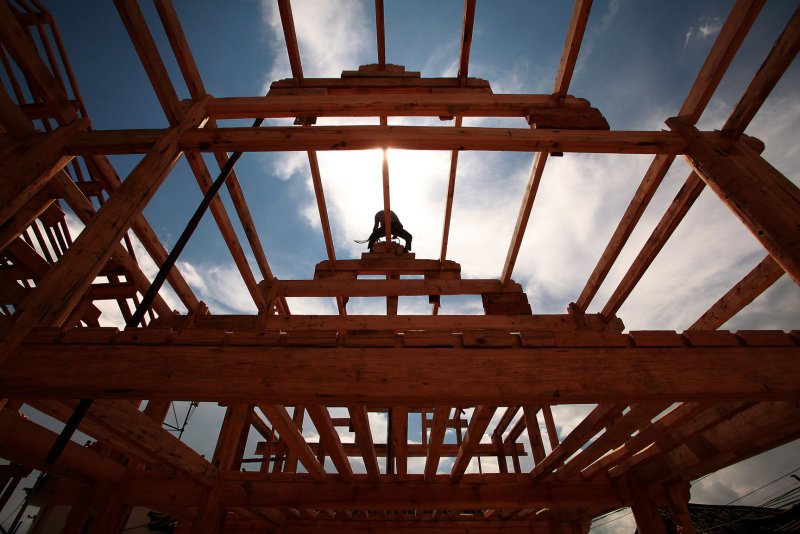Since home-building is deemed "essential" work, many construction projects have continued despite stay-at-home orders nationwide related to the outbreak. File Photo by Stephen Shaver/UPI |
License Photo
April 16 (UPI) -- U.S. home-building declined by nearly a quarter last month as the industry absorbed the impact of the coronavirus emergency, the Commerce Department said Thursday.
The department said in its monthly report home starts in the United States declined by 22.3 percent from February, or an annual rate of 1.2 million. Single-family home-building alone declined 17.5 percent, and the multi-family sector fell by nearly 32 percent.
New home construction in March represented an increase of just 1.4 percent over the same month last year, despite a 13-year high in December.
Since home-building is deemed "essential" work, many construction projects have continued despite stay-at-home orders nationwide related to the outbreak. Social distancing requirements, though, have slowed some of the work.
"Housing has been deemed an essential business in most of the nation, and in the few states where the governors have not acted, we urge them to deem construction as essential," NAHB Chairman Dean Mon said in a statement. "Housing can help lead an eventual rebound, as it has done in previous recessions."
Confidence in the market for single-family home construction has so far fallen this month to an index figure of 30, the lowest rating in almost eight years, the NAHB/Wells Fargo Housing Market Index said Wednesday.
The 42-point decline is the largest monthly tumble in the index's history.
"We expect further declines in housing starts in April, due to the unprecedented decline in builder confidence in our latest member survey," NAHB Chief Economist Robert Dietz added.















